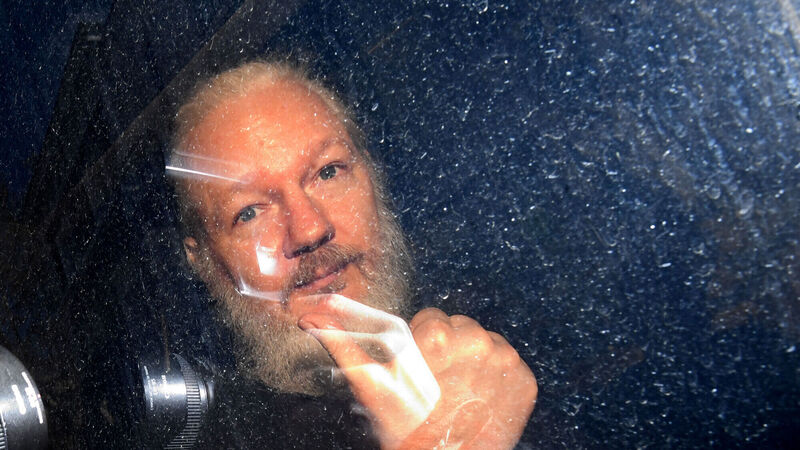Mick Clifford: Freedom of the press in grave danger as world turns back on Julian Assange

In wider society, the case has not caught the imagination, possibly because the figure at the centre of it, Julian Assange (pictured) does not make for a natural cause celebre. File photo: Victoria Jones/PA
If Julian Assange is extradited to the USA, history will not be kind to western media or politics.
Eight days ago, the UK Home Secretary Priti Patel gave the go-ahead for the Australian journalist to be extradited. He is wanted in the USA on spying charges, arising from the publication of Wikileaks in 2010, which exposed multiple war crimes by US armed forces in Iraq and Afghanistan.












